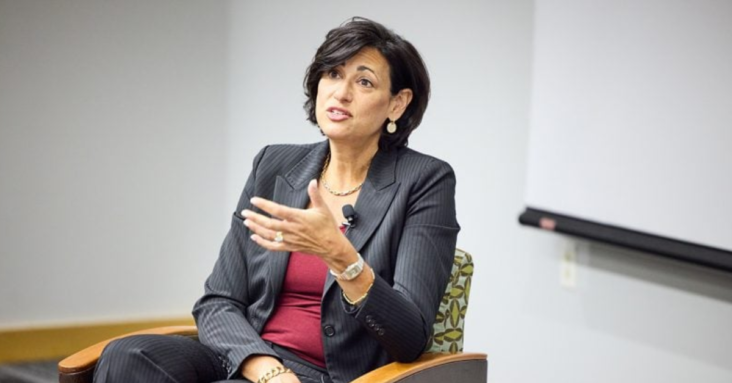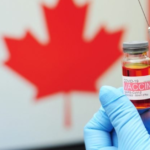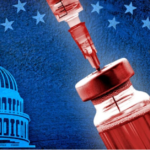
On 24 Sept 2021, when CDC director Rochelle Walensky was asked if it was safe to receive a covid-19 vaccine while breastfeeding, her reply was unwavering:
“There is no bad time to get vaccinated,” said Walensky.
“Get vaccinated while you’re thinking about having a baby, before you’re thinking about having a baby, while you’re pregnant with your baby or after you’ve delivered your baby.”
Love reading The Pulse? If you’re a regular reader of our work and love what we do, consider becoming a paid subscribing member and help us expand our work. You can support for as little as $5 a month and enjoy multiple member benefits. Click Here to Learn More.
But Walensky’s advice was not based on science. The safety studies had not been done.
It has been over a year since her comment, and a study published in JAMA found trace amounts of mRNA in the breast milk of mother who’d received the Pfizer or Moderna covid-19 vaccine.
The researchers speculated that lipid nanoparticles containing mRNA, once injected into the arm, are transported via the lymphatic system to the mammary glands and expressed into breast milk.
Yes, it was a small study, and the mRNA was only detected in expressed breast milk for up to two days, but the authors stated:
Aaron Kheriaty, psychiatrist and director of the Bioethics and American Democracy Program at the Ethics and Public Policy, Washington DC, has been critical of the “jab first, ask questions later” approach.

He says Walensky’s insistence about the safety of mRNA vaccines in breastfeeding women was “completely reckless” in the absence of adequate safety data.
“We don’t have evidence that it’s harmful, but we also don’t have sufficient evidence that it is safe for your baby, so that’s the first thing that needs to be said when there’s an absence of evidence,” says Kheriaty.
There are still many unknowns. Oral ingestion of mRNA bound to lipid nanoparticles has no demonstrated safety, and the pegylated product (a design of the mRNA vaccines) when ingested, can be rapidly absorbed through the gut lining.
“The safety studies should’ve been done right out of the gate. Until you actually do the studies, you cannot, at the same time, come out and say, don’t worry, this is safe. We have to inform people of the state of the science, we should tell them that the evidence is not clear,” he adds.
Public health authorities argued that pregnant women and their babies would face a greater risk of harm from covid than from the vaccine, but Kheriaty says it was guesswork.
“We didn’t know any of that. It was a theoretical risk. Childbearing women were excluded from the clinical trials, so we did not have that data.”
Childbearing women were coerced
Adam Urato, a maternal-foetal medicine specialist at MetroWest Medical Centre, Massachusetts, says vaccines have an important role to play in medicine, but admits that many of his patients have legitimate concerns about the unknown impact of covid-19 vaccines on pregnancy and breastfeeding.

“These women make good points. They should be listened to, and their judgement and decisions respected,” says Urato.
“After all, these vaccines are synthetic chemical structures. They are made in chemical manufacturing facilities. They aren’t ‘all natural’ substances. And, honestly, we just don’t know what all of the effects are going to be from using these vaccines during pregnancy and during breastfeeding,” he adds.
Urato rejects the media narrative that childbearing women are “victims of misinformation” if they have concerns about covid-19 vaccine safety.
“My patients are intelligent, they have good instincts and I think their concerns are valid. The idea that all of these women are misled, and uninformed ‘victims of misinformation’ is an insult to them,” he says.
When vaccine mandates were imposed across the globe, many pregnant and breastfeeding women were forced to get vaccinated under penalty of losing their jobs and those who declined, were accused of being anti-vaxxers.
“Pregnant women should be allowed to make personal health choices and decide what gets injected into their body, and the decision should be free from coercion,” says Urato.
Instead, doctors are being coached on ways to handle vaccine hesitancy. In Canada, for example, the College of Physicians and Surgeons of Ontario encouraged doctors to prescribe medication to manage anxieties about the vaccine or to recommend psychotherapy.
The precautionary principle
A recent article by British sociologist Robert Dingwall reminds us of the underlying principle of clinicians primum non nocere; the first duty of a doctor is to do no harm.
Dingwall writes that safety cannot be “assumed” but must be demonstrated. He says, “doing stuff just in case” or because “it might help,” is not sufficient.
“Emergency conditions do not justify the abandonment of the precautionary principle. If action is urgent, but benefits and harms are uncertain, then the actions or innovations must be temporary, provisional, and closely monitored with a view to withdrawing or halting them if their benefits are not proportionate to their harms.
Pandemic policies would have looked very different if the precautionary principle had been applied correctly.”
Urato agrees. He says that we will look back with regret at how public health authorities treated pregnant women.
“Vaccine mandates were a really cruel, uncompassionate, and inhumane way to treat pregnant women. The community needs to really learn from this awful episode and make sure nothing like this happens again.”



